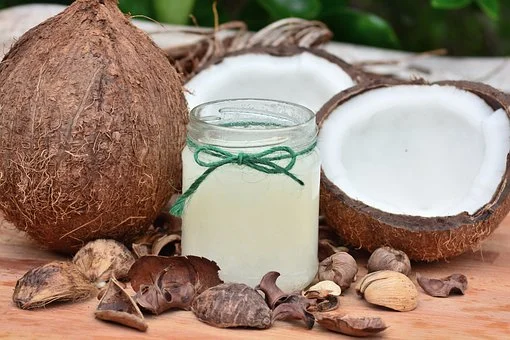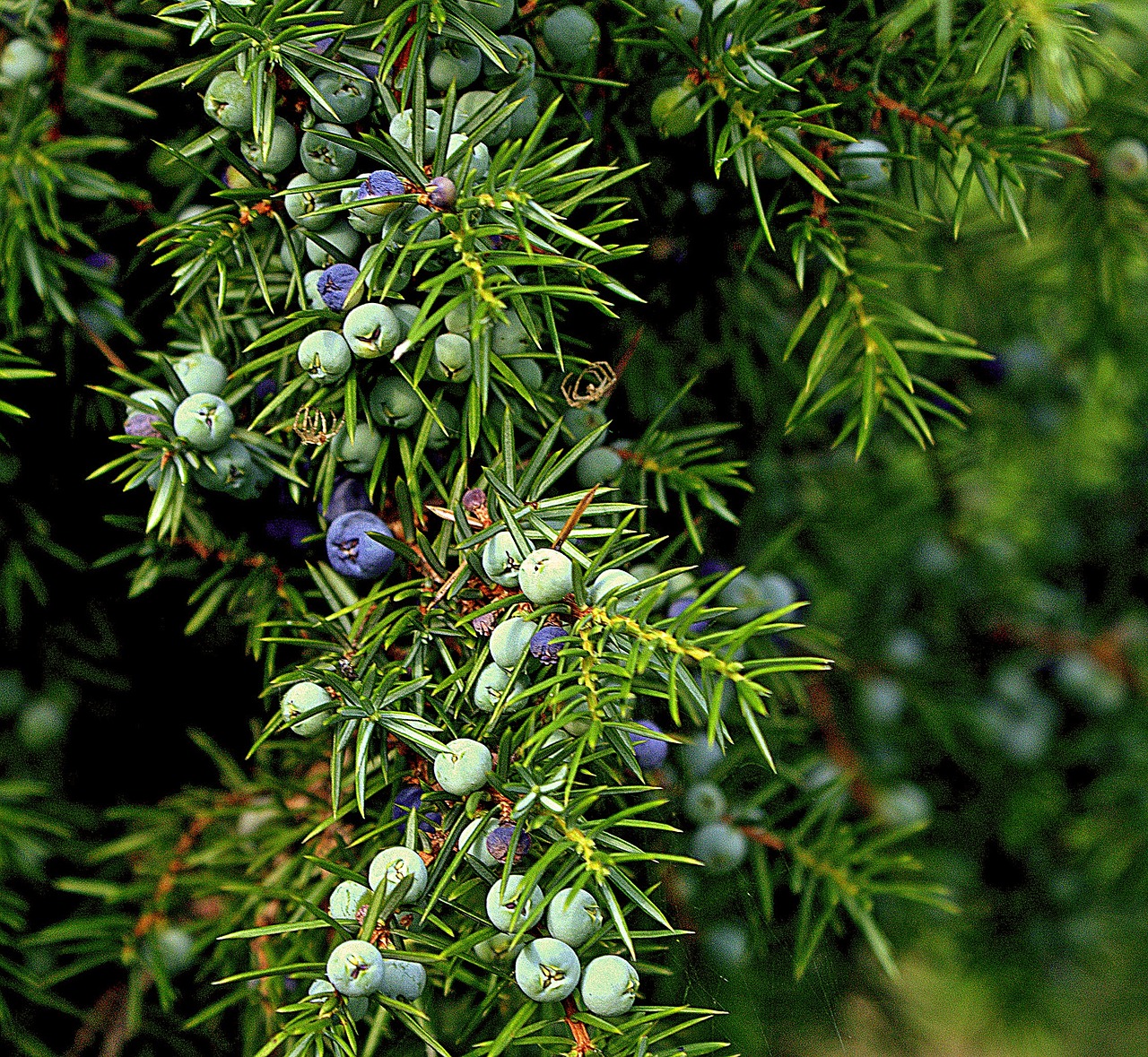Beauty
The best natural oils for skin care

The skin is quite possibly the main organ in the body. It’s liable for forestalling water misfortune, preventing microbes from entering the body, controlling internal heat levels, and putting away fat and water.
Ordinarily, the skin works fitting together amazingly and handles these obligations all the while. At different times, it needs help to renew what is lost. This is where healthy skin becomes an integral factor. While some view beauty care products as fundamentally a way to improve appearance, they likewise fill a practical need.
With customers creating some distance from handled skin health management items with many fixings to attempt normal skin health management items, regular oils have filled in notoriety. We’re covering probably the best regular oils for your skin, what you ought to search for and how you can try not to experience the ill effects of unfavorable or hypersensitive responses.

Which layer of skin is liable for water maintenance?
There are three layers to your skin: a flimsy top layer (epidermis), a thick center layer (dermis), and a base layer (subcutaneous fat). Each layer plays an unmistakable part. The center skin layer contains hair follicles, sweat organs, and veins. Additionally home to sebaceous organs is liable for making oil and keeping your skin delicate, hydrated, and waterproof.
This slick substance, called sebum, is a combination of fatty oils, unsaturated fats, waxes, and different parts that grease up the skin and assist it with holding dampness. Whether because of natural variables, conduct factors, or certain ailments, a lot of water can dissipate from your skin to cause dry skin.
By acquainting oils with your skin, you add a layer of security that secures dampness. To sweeten the deal even further, particular sorts of normal oils are wealthy in cancer prevention agents and have calming and antimicrobial properties.
Which oils are really great for your skin?
All oils aren’t made equivalent. Beneath, we dissect more than twelve distinct sorts of normal oils that might help your skin. Converse with your PCP or dermatologist before involving any of these items as a component of your skin health management standard as normal items can in any case cause unfavorably susceptible responses.
A considerable lot of the oils recorded are similar sorts tracked down in kitchen cupboards. Cooking oils will generally be refined, so choose cold-squeezed or raw oils assuming you intend to utilize them on your skin. This guarantees you get the greatest advantages.
While investigating these different oils, you’ll see words like linoleic corrosive and oleic corrosive. These are the really two kinds of unsaturated fats in oils. Oils high in linoleic corrosive will quite often be less comedogenic, importance they’re more averse to stopping up pores. Oils high in oleic corrosive will generally be more comedogenic, significance they’re bound to obstruct pores, particularly for individuals with sleek skin types.
Coconut oil
Coconut oil is high in soaked fat, which keeps it in a strong state at room temperature. The high-fat substance, joined with antibacterial and calming properties, makes it ideal for keeping dampness from leaving the skin. Coconut oil is comedogenic, so it can cause breakouts all over. Nonetheless, chilly squeezed, raw coconut oil is protected to use on different pieces of your body.
Olive oil
Plentiful in nutrients A, D, E, and K, olive oil likewise goes about as a cream and can assist with keeping your skin hydrated. Many sorts of olive oil are refined or a mix of a few kinds of oils. You’ll get the most advantages from additional virgin olive oil that is crude and cold squeezed.
Avocado oil
Avocados are a decent wellspring of dietary fiber, L-ascorbic acid, vitamin K and folate. Even though they have more fat than most natural products, avocados brag the great sort of fat — they’re high in linoleic corrosive and oleic corrosive. The oils removed from this natural product contain those equivalent supplements, making it a helpful healthy skin solution for dry skin.
Jojoba oil
Investigate your sunscreen bottle the following time you use it and you’ll probably see jojoba oil on the fixing list. When joined with different fixings, this oil helps improve their retention. Jojoba oil is high in wax esters, which assist with forestalling water misfortune. It can assist with treating different sorts of dermatitis and has mitigating properties.
Shea margarine
Shea spread is extricated from the nuts of a shea tree, which are local to West Africa. The result is like cocoa spread in that it stays strong at room temperature before liquefying once it hits warm skin. Shea spread is high in phenols and plant sterols, which contain mitigating and cell reinforcement properties.
Tea tree oil
Numerous regular oils can exacerbate skin inflammation, yet not tea tree oil. The antimicrobial properties in tea tree oil assist with sanitizing your pores while additionally diminishing enlarging and aggravation. However, a tiny amount makes an enormous difference. Spot any region with a q-tip plunged in a touch of tea tree oil.
Peppermint oil
This spice is a blend of watermint and spearmint. The oils from peppermint leaves can have mitigating and antifungal properties, making them a decent effective oil to reduce skin conditions that produce tingling.
Chamomile oil
At the point when utilized in teas and natural beverages, chamomile can assist your body and brain with unwinding. Chamomile oil works similarly to quiet your skin, and calming red, bothersome skin can be utilized.
Marula oil
This oil, which is high in cell reinforcements, comes from the marula tree local to Africa. Marula oil is viewed as a lighter oil, so you can utilize it on sleek skin without risking deteriorating skin breakout. This is because of its non-comedogenic properties that won’t stop up pores. Marula oil additionally holds dampness.
Argan oil
A well-known expansion to shampoos and other shower items, argan oil saturates the skin and flaunts cell reinforcement properties because of vitamin E and omega unsaturated fats.
Grapeseed oil
Grapeseed oil is another well-known cooking oil that likewise serves as an item you can use for your skin. Wealthy in omega-unsaturated fats, it has calming, cell reinforcement, and antimicrobial properties. You can likewise utilize it as a lotion. While shopping, pick cold squeezed or crude grapeseed oil.
Rosehip oil
Removed from the seeds of wildflower brambles, rosehip oil can be utilized as a lotion because of its capacity to hydrate the skin. It additionally contains beta carotene and nutrients C and E. Rosehip’s calming properties are helpful for individuals with skin conditions like dermatitis.
Rosemary oil
Another spice known as something else for its culinary purposes, rosemary is utilized to treat skin break out and to advance solid hair and skin.
Oregano
This famous cooking spice contains oils that might be advantageous in mending wounds on your skin.
Best Skin Care Oils
Best normal oils for dry skin
Most oils function admirably with dry skin, as their essential objective is to seal in dampness. However, there are not many that champion. By and large, coconut, rosehip, olive, and argan oils assist with treating dry skin. Additional virgin olive oil, coconut oil, and marula can assist treat with very drying skin that is inclined to break, drain,d chip.
Coconut oil, marula oil, and avocado oil are particularly valuable since they contain elevated degrees of oleic corrosive, which makes oils thicker and more extravagant to trap dampness. Oleic corrosive, which is additionally found in argan oil, can assist with offsetting sebum creation to guarantee dampness doesn’t leave the skin excessively fast. Argan oil is additionally plentiful in vitamin E to fix any harm brought about by dry skin.
Assuming that you have sleek skin that becomes dry, you might need to avoid a comedogenic oil, for example, coconut oil. These kinds of oil can obstruct pores, particularly on the face, and cause skin inflammation breakouts. All things being equal, decide on lighter oils, for example, argan, jojoba, or grapeseed oil. These oils retain all the more rapidly into the skin and can likewise assist with relieving dry regions destroyed of dampness.
Could you at any point put medicinal oils on your skin?
Among diffusers and setting drops in cleaning items, natural balms keep on being extremely popular nowadays.
However, that is only the start. These strong concentrates are additionally being utilized on body parts to help anything from scratches and slices to skin inflammation and sore muscles. Yet, would they say they are protected to utilize?
Try not to utilize unadulterated medicinal oils straightforwardly on your skin. Why? Rejuvenating balms are strong because it takes an enormous amount of the plant they are gotten from to create a limited quantity of oil, making them profoundly thought items. For instance, it can take many lemongrass plants to make one pound of oil.
Rather than putting these oils straightforwardly on your skin and taking a chance with an unfavorable response, weaken the oils in a transporter oil or water so they aren’t as strong. Transporter oils are normally nonpartisan plant-based oils that go about as a way to “convey” the rejuvenating balms to your skin cells. Models incorporate grapeseed oil, jojoba oil, or avocado oil.
Medicinal balms can in any case cause an unfavorably susceptible response, paying little heed to the amount you weaken them if you have delicate skin or a background marked by skin responses (terrible rash or hives). Oregano oil, lemongrass oil, chamomile oil, and cinnamon bark oil will generally cause more hypersensitive responses than other medicinal oils.
While citrus oils are protected to utilize when weakened, they might cause a burn from the sun whenever applied before heading outside. Utilize these oils either first thing or before bed to stay away from sun-related burns
Oils like severe almond, insula, hella, pennyroyal, sage, sassafras, turmeric, and wintergreen are possibly poisonous and ought not to be utilized on your skin.
If you’re utilizing medicinal ointments — or any normal oil — interestingly, utilize a modest quantity on your arm as a preliminary attempt to check for unfavorable responses.
Beauty
Benefits of coffee for hair and ways to use it

Benefits of coffee for hair
Coffee has gained popularity not only as a beverage but also as a potential ingredient for hair care. Here are some potential benefits of coffee for hair and different ways to use it:
- Stimulates hair growth: The caffeine present in coffee is known to stimulate hair follicles and promote hair growth. It may help increase blood circulation to the scalp, providing essential nutrients to the hair roots.
- Reduces hair loss: Coffee may help inhibit the effects of DHT (dihydrotestosterone), a hormone associated with hair loss. Applying coffee topically may block DHT and reduce hair fall.
- Adds shine and luster: Coffee can add shine and luster to dull hair. It may enhance the natural color and make the hair appear more vibrant.
- Strengthens hair strands: The antioxidants present in coffee, such as polyphenols, can help strengthen the hair shaft, reducing breakage and split ends.
- Acts as a natural hair dye: Coffee can act as a natural dye, particularly for dark hair. It may provide subtle brown tones or enhance existing brown color.

Here are a few ways to use coffee for hair:
- Coffee rinse: Brew a strong cup of coffee and let it cool. After shampooing your hair, pour the coffee over your hair and massage it into the scalp. Leave it on for a few minutes before rinsing thoroughly.
- Coffee hair mask: Mix brewed coffee with a natural hair mask ingredient, such as plain yogurt or coconut oil. Apply the mixture to damp hair and leave it on for 20-30 minutes before rinsing.
- Coffee oil treatment: Infuse coffee grounds in warm coconut or olive oil for a few days. Strain the oil and apply it to the scalp and hair, massaging gently. Leave it overnight and wash it off the next morning.
- Coffee spray: Brew a strong cup of coffee and allow it to cool. Transfer it to a spray bottle and spritz it onto your hair as a leave-in conditioner. Avoid using too much to prevent staining.
Remember to perform a patch test before applying coffee or any new ingredient to your hair or skin to check for potential allergic reactions. Additionally, individual results may vary, so it’s important to experiment and find the method that works best for your hair type and needs.
Beauty
Skin Pigmentation Natural Remedies

Natural recipes for the treatment of skin pigmentation
Skin pigmentation refers to the darkening or discoloration of the skin, often caused by various factors such as sun exposure, hormonal changes, aging, or certain medical conditions. While natural remedies can help improve the appearance of pigmentation, it’s important to note that they may not eliminate the issue. It’s always a good idea to consult with a dermatologist for an accurate diagnosis and appropriate treatment options. Here are a few natural recipes that you can try:
Lemon Juice and Honey Mask:
- Mix equal parts lemon juice and honey.
- Apply the mixture to the affected areas.
- Leave it on for 20 minutes before rinsing with lukewarm water.
- Repeat this remedy a few times a week.
Note: Lemon juice may cause skin sensitivity, so it’s essential to perform a patch test before applying it to larger areas. Additionally, avoid sun exposure after using lemon juice on the skin as it can cause photosensitivity.
Aloe Vera Gel:
- Extract fresh gel from an aloe vera leaf.
- Apply the gel directly to the pigmented areas.
- Leave it on for 30 minutes before rinsing with water.
- Repeat this process daily for several weeks.
Turmeric and Milk Paste:
- Mix 1 teaspoon of turmeric powder with enough milk to form a paste.
- Apply the paste to the affected areas.
- Leave it on for 20-30 minutes before rinsing with water.
- Repeat this remedy a few times a week.

Potato Juice:
- Grate a potato and squeeze out the juice.
- Apply the juice to the pigmented areas using a cotton ball.
- Leave it on for 20 minutes before rinsing with water.
- Repeat this process daily for a few weeks.
Apple Cider Vinegar Toner:
- Dilute apple cider vinegar with an equal amount of water.
- Apply the mixture to the affected areas using a cotton ball.
- Leave it on for 5-10 minutes before rinsing with water.
- Repeat this process once daily, gradually increasing the exposure time.
Remember, it’s important to be consistent and patient when using natural remedies. If you don’t see significant improvement or experience any adverse reactions, discontinue use and consult a dermatologist for further guidance.
Beauty
Juniper Berries: Benefits & Uses

6 BENEFITS & USES OF JUNIPER BERRIES
Juniper berries, the fruit of the juniper tree (Juniperus communis), have been used for various purposes for centuries. Here are six benefits and uses of juniper berries:
- Culinary Uses: Juniper berries are commonly used as a spice in cooking, particularly in European cuisines. They have a unique flavor profile that is often described as piney, citrusy, and slightly peppery. Juniper berries are a key ingredient in dishes like sauerkraut, pickles, game meats, and certain spirits like gin.
- Digestive Aid: Juniper berries have been traditionally used as a digestive aid due to their carminative properties. They can help relieve symptoms such as bloating, gas, and indigestion. Juniper berries are sometimes used to make herbal teas or tinctures that can support digestive health.
- Antioxidant Properties: Juniper berries are rich in antioxidants, including flavonoids and polyphenols, which help protect the body against oxidative stress and free radicals. Antioxidants are beneficial for overall health and may help reduce the risk of chronic diseases.
- Diuretic Effects: Juniper berries are known for their diuretic properties, meaning they can increase urine production and promote detoxification. This effect can help reduce water retention, support kidney function, and flush out toxins from the body.
- Respiratory Support: Juniper berries have been used in traditional medicine to support respiratory health. They may help alleviate symptoms of respiratory conditions like coughs, bronchitis, and congestion. Juniper berry essential oil is sometimes used in aromatherapy or as an ingredient in chest rubs.
- Skin Care: The antimicrobial and anti-inflammatory properties of juniper berries make them beneficial for skin health. Juniper berry extract or oil is often used in natural skincare products to help soothe and cleanse the skin, treat acne, and reduce inflammation. However, it’s important to note that juniper berry oil can be irritating to some individuals, so it should be used with caution and in diluted form.
While juniper berries offer potential benefits, it’s important to consult with a healthcare professional before using them for therapeutic purposes, especially if you have any underlying health conditions or are taking medications.

WAYS TO USE JUNIPER BERRIES
There are several ways to use juniper berries in various forms. Here are some common methods:
- Culinary Use: Crush juniper berries using a mortar and pestle or a spice grinder and use them as a spice in cooking. They are often used in marinades for game meats, stews, sauerkraut, and pickles. Juniper berries can also be added to spice blends or used to flavor sauces and soups.
- Herbal Tea: Juniper berries can be used to make herbal tea. Crush a few berries and steep them in hot water for about 10 minutes. The resulting tea has a distinct flavor and can be consumed on its own or blended with other herbs for added benefits.
- Infused Spirits: Juniper berries are a primary ingredient in gin, contributing to its characteristic flavor. You can infuse spirits like vodka or gin with juniper berries to create your own flavored alcoholic beverages. Simply add crushed berries to the spirit and let it steep for a few days or weeks before straining.
- Tincture: Juniper berry tincture is made by soaking crushed berries in alcohol, such as vodka or brandy, for several weeks. This creates a concentrated liquid extract that can be used in small doses for digestive support or other medicinal purposes. Consult an herbalist or follow a trusted recipe for proper tincture preparation.
- Aromatherapy: Juniper berry essential oil is used in aromatherapy for its therapeutic properties. It can be diffused in a room to promote relaxation, added to bathwater for a soothing experience, or used in massage oils for its rejuvenating effects. Ensure to follow proper dilution guidelines and consult a qualified aromatherapist for guidance.
- Skincare Products: Juniper berry extract or oil is used in natural skincare products such as soaps, lotions, and creams. These products may help cleanse the skin, reduce inflammation, and promote overall skin health. Ensure to follow the instructions provided by the product manufacturer.
Remember to use juniper berries in moderation and consult a healthcare professional or herbalist for personalized advice, especially if you have any specific health concerns or are taking medications.
DISCOVER THE MANY USES OF JUNIPER BERRIES
Juniper berries have a wide range of uses across various domains. Here are some additional uses of juniper berries:
- Natural Cleaning: Juniper berries can be used as a natural cleaning agent. Create a homemade cleaning solution by simmering crushed juniper berries in water, then strain and use the liquid to clean surfaces. The antimicrobial properties of juniper berries can help disinfect and freshen your living space.
- Herbal Medicine: Juniper berries have been used in traditional herbal medicine for their medicinal properties. They are believed to have diuretic, antiseptic, anti-inflammatory, and antifungal effects. Juniper berry extracts or tinctures can be used to support urinary health, alleviate digestive issues, and assist with joint pain.
- Craft and Decor: Dried juniper berries can be used in craft projects and as decorative elements. They add a natural touch to wreaths, potpourri, and floral arrangements. Juniper berries can also be used to create unique and fragrant homemade sachets or scented candles.
- Culinary Preservatives: Juniper berries contain natural preservatives that help inhibit the growth of certain bacteria and fungi. They are commonly used in preserving and curing meats, particularly in traditional dishes like sausages and salami. The aromatic and tangy flavor of juniper berries adds depth to preserved foods.
- Outdoor Cooking: Juniper berries can be used for outdoor cooking. They can be added to smoking chips or placed directly on charcoal to impart a distinct flavor to grilled or barbecued meats. The smoky, resinous aroma of juniper berries enhances the taste of grilled dishes.
- Potpourri and Aromatics: Dried juniper berries can be added to potpourri blends to release a pleasant and refreshing scent. Crushed juniper berries can also be used in homemade scented sachets or drawer fresheners to impart a natural aroma and help repel pests.
It’s important to note that while juniper berries have various uses, they should be used in moderation and with caution. Pregnant women, individuals with kidney disorders, or those on certain medications should consult with a healthcare professional before using juniper berries for medicinal purposes.
-

 Beauty4 years ago
Beauty4 years agoAll you need to know about the problem of excessive hair in women
-

 Nutrition4 years ago
Nutrition4 years agoBenefits of eating fruits daily
-

 Beauty3 years ago
Beauty3 years agoRecipes for hair lengthening – the fastest 8 recipes for hair lengthening and intensification
-

 Fitness4 years ago
Fitness4 years agoBack exercises and ways to apply them to get rid of problems
-

 Lifestyle4 years ago
Lifestyle4 years agoPromote a healthy lifestyle
-

 Beauty4 years ago
Beauty4 years agoBenefits of lavender – Here are more than 10 benefits of lavender for the body
-

 Business Services2 years ago
Business Services2 years agoOnline aeronautical engineering degree
-

 Beauty3 years ago
Beauty3 years agoBariatric Surgery in USA






